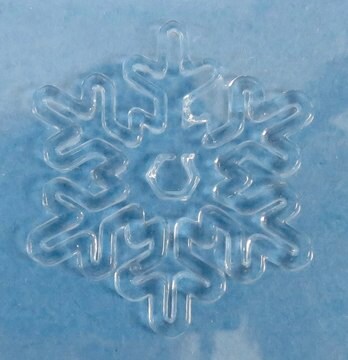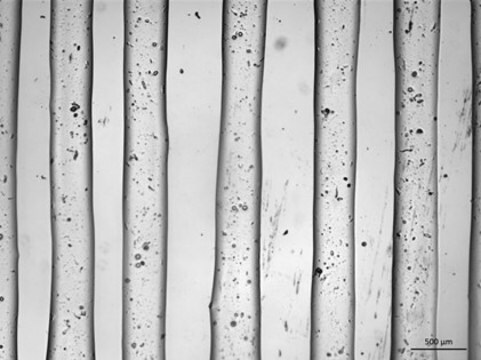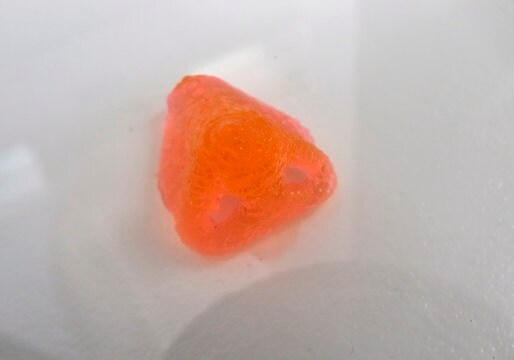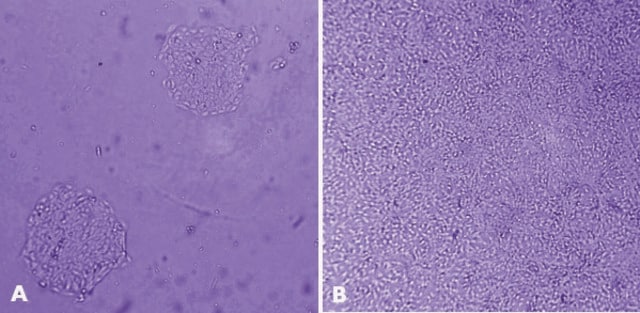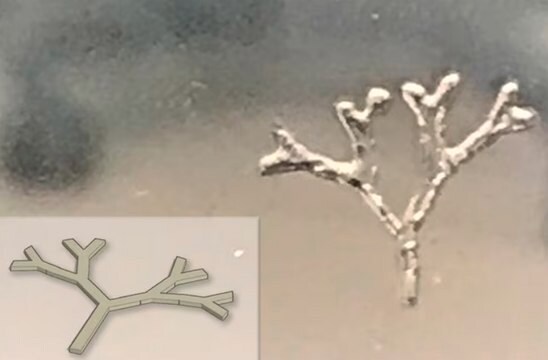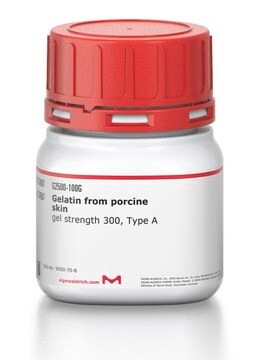934178
TissueFab® bioink
(GelHAHep)MA Vis/405 nm, low endotoxin
别名:
3D Bioprinting, Bioink, Controlled Release, GelMA, Gelatin, Gelatin Methacryloyl, HAMA, Heparin, Heparin Methacrylate, Hyaluronan, Hyaluronic Acid, Hyaluronic Acid Methacrylate, Hydrogel
登录查看公司和协议定价
所有图片(1)
About This Item
分類程式碼代碼:
12352201
推荐产品
品質等級
無菌
0.2 μm filtered
形狀
gel form
包含
<50 EU/mL Endotoxin
成份
Gelatin, Hyaluronic acid, Heparin, Alginate
雜質
<5 CFU/g Bioburden ( fungal)
<5 CFU/g Bioburden (Total Aerobic)
顏色
pale yellow to colorless
pH值
6.5-7.5
相容性
3D bioprinting, extrusion bioprinting
儲存溫度
2-8°C
正在寻找类似产品? 访问 产品对比指南
相关类别
一般說明
TissueFab® bioink -(GelHAHep)MA Vis/405 nm, low endotoxin formulation can be used to bioprint cell-laden hydrogels in the desired shape without any supporting material. This bioink can be crosslinked in one step using exposure to 405 nm light for further culture and maturation of cells for tissue engineering and regenerative medicine applications.
應用
Currently, there is a need for high-quality, commercially available ready-to-use bioink formulations to enable the reproducible fabrication of synthetic tissues and organs by 3D Bioprinting
- drug discovery
- in-vitro disease models
- regenerative medicine-cell-cultured meat
特點和優勢
- Bioprinting models replicate biology for drug discovery and in vivo applications
- Sterile, low endotoxin-Batch control offers reproducible models for preclinical toxicology testing and drug screening
- Extended shelf-life & stability
其他說明
Heparin is a naturally occurring linear biopolymer and highly sulfated glycosaminoglycan (GAG). Research has demonstrated that heparin can modulate binding extracellular matrix proteins and sequester growth factors and cytokines, making them useful in 3D applications.
The methacrylate-functionalization of heparin allows thermal or photochemical crosslinking via covalent conjugation. Heparins exhibit high anionic charge densities to promote large swelling ratios in water. Heparin-based bioinks are used in tissue engineering, 3D bio-printing, and drug delivery applications.
Gelatin methacryloyl (GelMA) is a polymerizable hydrogel material derived from natural extracellular matrix (ECM) components. Due to its low cost, abundance, and retention of natural cell binding motifs, gelatin has become a highly sought material for tissue engineering applications. The addition of photocrosslinkable methacrylamide functional groups in GelMA allows the synthesis of biocompatible, biodegradable, and non-immunogenic hydrogels that are stable in biologically relevant conditions and promote cell adhesion, spreading, and proliferation.
Hyaluronic acid (HA) is a linear polysaccharide of alternating D-glucuronic acid/N-acetyl-D-glucosamine found primarily in connective tissues. HA-based hydrogels are prevalent in tissue engineering, 3D bioprinting, and drug delivery applications. The methacrylate (MA) functionalized hyaluronic acid is photo-cross-linkable.
Low Endotoxin, low bioburden: Endotoxins can negatively impact cellular growth, morphology, differentiation, inflammation, and protein expression. The bioburden is the number of contaminated organisms found in a given amount of material.
We test each lot for endotoxins in addition to total bioburden (aerobic and fungal) to minimize unwanted interactions. For more information: Cell Culture FAQs: Bacterial Endotoxin Contamination
The methacrylate-functionalization of heparin allows thermal or photochemical crosslinking via covalent conjugation. Heparins exhibit high anionic charge densities to promote large swelling ratios in water. Heparin-based bioinks are used in tissue engineering, 3D bio-printing, and drug delivery applications.
Gelatin methacryloyl (GelMA) is a polymerizable hydrogel material derived from natural extracellular matrix (ECM) components. Due to its low cost, abundance, and retention of natural cell binding motifs, gelatin has become a highly sought material for tissue engineering applications. The addition of photocrosslinkable methacrylamide functional groups in GelMA allows the synthesis of biocompatible, biodegradable, and non-immunogenic hydrogels that are stable in biologically relevant conditions and promote cell adhesion, spreading, and proliferation.
Hyaluronic acid (HA) is a linear polysaccharide of alternating D-glucuronic acid/N-acetyl-D-glucosamine found primarily in connective tissues. HA-based hydrogels are prevalent in tissue engineering, 3D bioprinting, and drug delivery applications. The methacrylate (MA) functionalized hyaluronic acid is photo-cross-linkable.
Low Endotoxin, low bioburden: Endotoxins can negatively impact cellular growth, morphology, differentiation, inflammation, and protein expression. The bioburden is the number of contaminated organisms found in a given amount of material.
We test each lot for endotoxins in addition to total bioburden (aerobic and fungal) to minimize unwanted interactions. For more information: Cell Culture FAQs: Bacterial Endotoxin Contamination
法律資訊
TISSUEFAB is a registered trademark of Merck KGaA, Darmstadt, Germany
儲存類別代碼
12 - Non Combustible Liquids
水污染物質分類(WGK)
WGK 3
閃點(°F)
Not applicable
閃點(°C)
Not applicable
我们的科学家团队拥有各种研究领域经验,包括生命科学、材料科学、化学合成、色谱、分析及许多其他领域.
联系技术服务部门